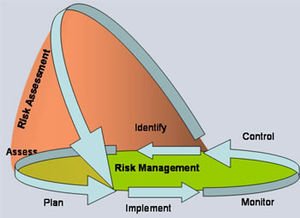In the realm of marketing, where creativity has no bounds, ambush marketing has emerged as a shrewd strategy that challenges the conventional norms of brand promotion. Ambush marketing entails a brand seizing an opportunity presented by a specific event or situation without holding the status of an official sponsor. This unorthodox approach sparks interest and debate within the business community, as companies engage in a battle of wits and ingenuity to outsmart each other.
Understanding Ambush Marketing:
Ambush marketing is a strategic maneuver where a non-sponsoring brand cleverly aligns itself with an event to garner visibility and attention without committing to the financial obligations of official sponsorship. This practice enables companies to capitalize on the excitement surrounding major events, such as sports competitions, music festivals, or cultural phenomena, without incurring the substantial costs associated with official sponsorship.

Types of Ambush Marketing:
Direct Ambush Marketing:
- Encompasses direct allusions to the event or the official sponsors.
- Involves the crafty utilization of keywords, symbols, or catchphrases associated with the event.
- Example: A brand releasing an advertisement featuring phrases like “unofficial sponsor” or incorporating event-related imagery without explicitly violating trademarks.
Association Ambush Marketing:
- Establishes a connection with the event without overtly referencing it.
- Involves the creation of campaigns or promotions that subtly link the brand to the occasion.
- Example: A company adopting a similar color scheme or thematic elements associated with a major sports tournament in its advertising.
Ambush by Intrusion:
- Involves infiltrating the event or its surrounding areas without official permission.
- Covertly promotes the brand on-site without authorized consent.
- Example: Distributing unauthorized merchandise or setting up guerrilla marketing activities near the event venue.
Notable Examples:
Nike and the Olympics:
- Nike has gained recognition for employing ambush marketing tactics during the Olympic Games.
- In 2012, Nike released an ad featuring athletes with no direct reference to the Olympics but effectively capitalized on the global sports fervor, diverting attention from official sponsors.
Pepsi and the Super Bowl:
- Pepsi has a history of participating in ambush marketing during the Super Bowl, a prime advertising opportunity.
- They executed campaigns that capitalized on the event’s popularity without explicitly mentioning the Super Bowl, diverting attention away from official sponsors.
Ambush marketing often treads a fine line between clever promotion and legal infringement. While companies aim to push boundaries, they must exercise caution to avoid violating trademarks, copyrights, or intellectual property rights associated with the event. Legal actions initiated by official sponsors or event organizers can result in reputational damage and financial consequences for the ambushing brand.
Ambush marketing remains a captivating and contentious facet of the business world, highlighting the influence of creativity and resourcefulness in brand promotion. As companies strive to find innovative ways to distinguish themselves in a saturated market, the boundary between fair competition and infringement becomes increasingly indistinct. With the evolution of marketing strategies, one can anticipate more ingenious and audacious ambush campaigns challenging the status quo, transforming the business landscape into an exhilarating and dynamic arena for both brands and consumers alike.
Tags: ambush marketing nike pepsiYou might like reading:

Diversity vs. Innovation: A new perspective
Imagine the fate of Apple Inc. without Steve Wozniak, popularly referred to as the brains behind arguably the world’s most innovative corporation. On the other hand, the all-popular Steve Jobs, the face of Apple Inc, was a sheer marketing genius. Steve Wozniak is a well-known introvert as contrasted by his former partner Steve Jobs, a seasoned extrovert. Do you think […]

How to manage risk in Project Management !
Introduction Often tagged with a negative connotation, risk is looked upon as a negative entity affecting the course of project management process. Any experienced project manager would say otherwise. Unlike the traditional notions, risks are not always bad. There are good risks too. Hence risks are classified as Positive and Negative risks. Akin to negative threats which represent threats, positive […]






























